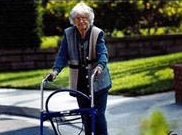Stephen Ministries
What is the Stephen Ministries?
Stephen Ministers are congregation members trained by Stephen Leaders to offer high-quality, one-to-one Christian care to people going through tough times. A Stephen Minister usually provides care to one person at a time, meeting with that person once a week for about an hour.
“Bear one another’s burdens, and in this way you will fulfill the law of Christ.” (Galatians 6:2, NRSV.
What are Care Receivers?

Care receivers are people – congregation members and others in the community – who receive care from a Stephen Minister. These are people struggling through a difficult time in life – experiencing grief, divorce, job loss, chronic or terminal illness, or some other life crisis.
Some important guidelines for this caring relationship protect both the care receiver and the Stephen Minister:
- The relationship between a care receiver and a Stephen Minister is confidential.
- Men are matched with men; women with women.
- When a care receiver’s needs exceed what a Stephen Minister can provide, the Stephen Ministry team makes a referral to an appropriate mental health professional or other community resource.
We live in a fast-paced and fragmented world. People suffer crises and tragedies, but they don’t have caregivers they can count on. Family members and friends may be scattered across the continent – or even the world. Neighborhoods rarely offer the support they once did. So when a crisis or challenge hits, many people have no one to turn to and end up facing it alone.
Overwhelming Needs
Congregations today are overwhelmed with needs for care – needs of their own members and of the surrounding community.
- People who are hospitalized
- The grieving
- Those suffering loneliness or discouragement
- The divorced or separated
- Those who are dying and their families and friends
- Unemployed persons
- People who are home-bound or institutionalized
- Those dealing with moving and the losses and challenges of relocating
- Parents grappling with loss when children leave home
- Those convalescing or rehabilitating
- New parents
- Single parents and children being parented by grandparents.
- Victims of natural or human-caused disasters
- Those in spiritual crisis



